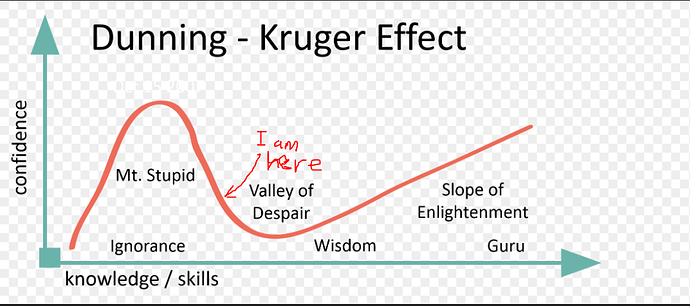Most jurisdictions have mismanaged the pandemic. Ones that by and large haven’t: Taiwan never had a lockdown and they’ve controlled the virus. China had a sharp lockdown, and they’re open domestically. NZ had a sharp lockdown, eliminated the virus, and a tiny outbreak recently resulted in a very short lockdown and now AFAIK they’re at it again.
Australia arsed up its first lockdown, and two states had outbreaks. VIC had to lock down again. NSW was able to maintain covid-normal restrictions, test and contact trace down to effective elimination. But an entire state has been in lockdown for about 2 months now, and most of the citizens of that state aren’t happy about it because it was preventable (a quarantine stuff-up caused the outbreak) but they understand that within a few weeks, our country will be basically covid-free. And if we play our cards right, we can ride it out till the vaccine.
Some people may not think that the restrictions have been worth it. But by and large I can tell you that Australians do think so.
I am being asked by some people in this thread to join the fray. Apparently they think that I am qualified, as allegedly are they, to debate climate science and pandemic epidemiology.
This is not a debate I think is worth having. If you’re a covid skeptic, you now must believe that every medical authority on the planet outside of Sweden, and every local, state and federal government, have conspired to hurt their own economies for no reason and on no evidence. If you are a covid skeptic, you are saying that you know better than every health authority on the planet. They’re all wrong, and you’re right.
Let me remind you that Sweden’s actions (which are more restrictive than many people think) make perfect sense. If a vaccine never comes, Sweden may be best-placed to live in a covid-filled world. Suppressing the virus, which Sweden is doing just less intensively than other countries, was always about keeping the hospitals from reaching capacity, and perhaps saving lives in advance of a vaccine.
We cannot know the future. The question has always been about what is the best course of action now. How do we save the most lives? How do we prevent the greatest number of people from long-term maiming from the virus? Those actions exist on a spectrum, from effective elimination (China, Taiwan, NZ, Australia) to “herd immunity” (Sweden, US, Brazil, the latter two by default). We won’t know which was “right” until perhaps 2022. We are doing, as a global society, the best we can with the information we have.
Given this, it is honestly stunning hubris for any one random self-proclaimed “expert” to imagine that they have better information than every government and every health authority on the face of planet Earth. I mean, really.
I do not have to talk about a random engineer’s videos or articles or graphs. I’ve seen these arguments, and I see nothing that challenges the consensus views. Literally nothing that makes me think Australia/NZ/Taiwan/China have made a mistake.
Same with climate deniers, by the way. The IPCC, NASA, literally every serious scientific authority on the planet is united in warning us all about the fact of anthropogenic warming. I see literally no compelling evidence to question this, and I’ve seen all the arguments under the sun. And I’ve ill-advisedly argued with them on occasion.
If you are a denier, you have to be serious for a minute. You need to admit that you just don’t like the policy outcomes that the scientific consensus has led us towards. Don’t sit there and argue spurious points as if you’re a PhD in epidemiology. You aren’t, and you don’t come off as serious. The arguments sound amateurish. When I make the analogy to 9/11 denial and evolution denial, I really mean to say that you sound indistinguishable from them.
Argue the policy. Say that you are prepared to accept millions of deaths and millions of crippled people for a better GDP outcome this year.
I’ll be right there to point out that the virus would inherently annihilate the economy even if governments didn’t introduce any restrictions. But these are the only debates worth having, in my view.



 . And they should be doing that. Nobody should get a pass when they do such, not Ivor, not anybody.
. And they should be doing that. Nobody should get a pass when they do such, not Ivor, not anybody. So where’s the “shrug” emoji/icon?
So where’s the “shrug” emoji/icon? )
)



 )
) in the sand and do not feel like shifting it, even a little bit, to get a clearer view.
in the sand and do not feel like shifting it, even a little bit, to get a clearer view.